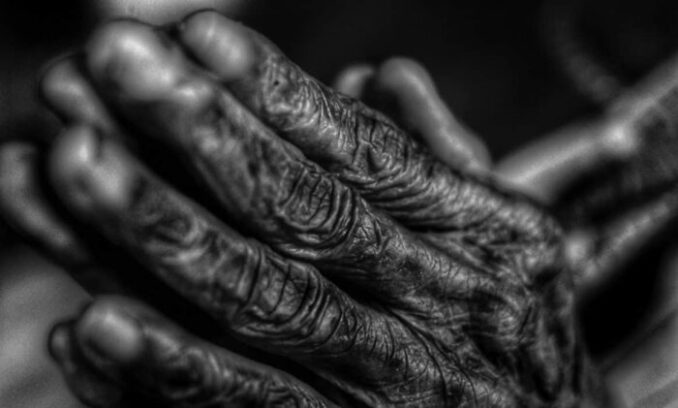“We send our thoughts and prayers.”
We often hear these words after a tragedy, whether the death of a loved one or a horrific mass shooting like we saw earlier this week.
Using “thoughts and prayers” to avoid real action
Over the past week, I’ve seen all sorts of social media posts from progressive voices, critiquing the use of “thoughts and prayers” among conservative Americans. It’s clear that I’m not the first to notice that “sending thoughts and prayers” is often not followed by any action of substance. Some send their thoughts and prayers and move on.
I, like many others, find this type of avoidance of tangible action to be deeply troubling and worthy of our criticism. We can’t move forward as a society until we are willing and able to take action ourselves.
This behavior, I think, is ultimately rooted in theism – the belief that there is a Supreme Being or God who controls the events on Earth. What we see on Earth is really a reflection of whether or not God is happy, or some manifestation of his grand plan. From that lens, prayers make some sense. They are a way to appeal to God in the hopes that he might lend us his mercy and forgiveness, might alter his plan to relieve our suffering. (Aside: It’s worth noting, I think, that if there is a God that control events, I find it pretty likely that he’d be more swayed to change his plan based on our actions, rather than our thoughts and prayers).
It may not surprise you that I think it’s extremely unlikely this is actually the way the world works. I don’t see any evidence for this kind of omnipotent God. If such a God exists, then of course, he was the one that caused the massacre to happen.
In reality, events on Earth are controlled by those of us down here on Earth. There is no God looking down on us, handing out judgments, sending locusts and plagues. There is no Supreme Being to pass the buck to. We create the world we live in.
And from this lens, thoughts and prayers alone are egregiously insufficient. In isolation from any action, their primary purpose is not to help anyone, but to relieve people from the burden of offering more tangible support and assistance. They are just another tool we use to avoid responsibility.
Using “thoughts and prayers” to maintain power
But more than that, the “thoughts and prayers” mindset keeps existing, often incredibly destructive, power structures in power. When we believe that God is in control, we are less likely to see that corrupt governments, greedy corporations, and others are wielding undue power and using it toward their own ends. When we believe that “thoughts and prayers” are a legitimate solution, we are much less likely to find policy solutions.
Those who are truly in power want us to send our “thoughts and prayers” and ask God to change things for us. Because when we do, we turn away from asking those truly pulling the strings to change their ways.
Using “thoughts and prayers” to set an intention
It might surprise you then that I think the critique of “thoughts and prayers” has been largely unfair.
First, I don’t think there are actually that many folks who think “thoughts and prayers” are enough. Many simply use it as a way of saying “I’m thinking of you, I’m here for you”. To have such scorn for words of support in trying times seems ill-placed to me. Sure, if someone claims that thoughts and prayers are enough by themselves, I’m going to call them out on it. But until they do, I will assume they know that’s not enough.
But more importantly, I think that thoughts and prayers can actually be of real help in the world. No, asking God to change things for us isn’t going to work. But there is more than one type of praying. There is: 1) asking God to make things better and 2) creating an intention to yourself and our collective self that things can and should change, shifting our inner selves in alignment toward that change. Under the first, we are asking something else to make it better. Under the second, we are focusing our energies on something that needs our attention. We ready ourselves for action.
In doing so, we make ourselves more likely to engage in much-needed conversations at the dinner table. We make ourselves more likely to vote our conscience, more likely to act.
Before we do anything of value and impact, we must first commit to it in our own hearts and minds.



